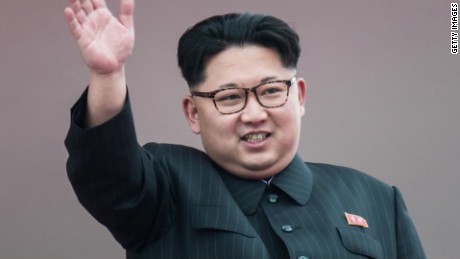For all the fury and fiery reactions to President Donald Trump’s words yesterday, North Korea and Kim Jong-Un has been conspicuously quiet today. And isn’t that the point, afterall? Using harsh words against a weird and unwieldy rogue nation is exactly what is called for in these situations.
During a photo op at the Trump National Golf Club in Bedminster, New Jersey, the US President stated that if North Korea continues threatening the United States the regime will “face fire and fury like the world has never seen.” The only response from the Regime last night was to point out that Guam might be a likely first target if military reactions breakout.

This is not merely rhetoric (and the media should stop using that term to describe the very serious back and forth playing out between NOKO and the United States). This is force retaliation with equal and symmetrical force on a verbal scale. Not an escalation — given what North Korea has said in the recent weeks during their ballistic missile tests. But Trump is speaking in terms that North Koreans can understand and respect, for lack of a better word.
Authoritarian regimes understand power and the force of words. And they usually hear weak and feeble responses (or non-responses) from Western leaders. Non-responses to threats simply empower authoritarian regimes and legitimize dictatorships in the eyes of their denizens. From Castro to Kaddafi to the Glorious Leader’s own father , Kim Jong-il, all of them blamed the US for their problems deflecting attention away from their own doings and using the US as a scapegoat for the failed states they ran. (Only Kaddafi faced military retaliation from President Ronald Reagan in 1986, and was quiet for the rest of his life since.)
Let’s take a look at something people may not know about North Korea; in a way the country is… weird. The people are embargoed from hearing anything outside of the country’s borders, everything they hear and believe comes directly from the leader Kim Jong-Un or other leaders in the regime. Here’s what they are told from birth: The US viciously attacked North Korea in 1952 and Kim’s grandfather singlehandedly defeated and destroyed the US troops. The Kims (Sung, Jung-il, and Jung-un) are deities to the people of North Korea; they are divine and Kim Sung is believed to be the god of the Sun in human form. The people are told to feel safe as Kim Jung-un can smote any enemy at any time, just like the Great Leader and Dear Leader before him.
Meanwhile, North Korea is a horrific place to live with famines taking hundreds of thousands of lives over the decades since the end of the Korean War. (Famine in the late 1990s is thought to have killed 400,000 people.) North Korea also fails on the Human Rights front, employing forced labor camps to take political dissidents and threats to the regime out of society. North Korea is a military state with the largest standing army in the world of 9 million troops.

The people can’t be blamed for the distorted reality the regime has force fed them for decades. They see threats from every nation; they blame all of their ills on foreign governments; the isolation is forced upon them not by the regime but by the rest of the world. Their only savior is any of the Kim’s (in human or god-like form) and they whole-heartedly trust the leader to guide them through the perils of the world outside that is crushing in around them. With the world against them causing them daily strife they cling to the regime’s guidance and military protection.
In so many words, we are not dealing with rational actors. And a new tactic might be best here; speak to power. Talk back to them in a stern and disdainful voice. North Korea is a militaristic state and the regime will only respond to a forceful voice; anything else is perceived as meek acquiescence. Previous attempts with a softer and diplomatic voice have gone unheeded.
Decades of ignoring the state has led to nuclear proliferation. Years of punishing sanctions has only brought them closer to their de facto allies, namely China – their one main economic trading partner. By diplomatically isolating the state we may have in fact made them a stronger enemy, more resolute, more determined to build up nuclear ICBMs in order to aggressively threaten the the Asia-Pacific region and the United States.
So in order to get through this and avoid an actual fighting war, a war of words with the regime seems like a viable foreign policy option to try.

